We are pleased to announce a further call for applications to the Research Impact Fund and the Public Engagement funding stream
The deadline for applications to both funds is Monday 28th February at 17:00. There will be two further Q&A sessions to answer any queries you may have about applying, at 14:00 on 21st February and 10:00 on 24th February. Links for booking via OD will be shared on the Research Blog when they are available.
Applicants are strongly advised to contact Impact Advisors Beth Steiner or Amanda Lazar (RIF) or Engagement Officer Adam Morris (PER) to discuss their proposals.
Research Impact Fund
The Research Impact Fund is split into two strands:
| |
Aim |
Amount |
Who can apply? |
| Strand 1 |
To support the development of new research partnerships and networks, to lay the groundwork for future research projects, i.e., to engage with key stakeholders, and establish partnerships and networks to support the co-creation of research questions |
Up to £2,000 |
Early career researchers (within 7 years of completing their doctorate, or equivalent experience, not associate professors / professors) and staff new to research (have not published an academic output, or received internal or external funding for research) |
| Strand 2 |
To provide support for emerging impact from your own existing underpinning research, i.e., to support the development of research impact across BU and begin to identify potential case studies for post-REF2021 exercises |
Up to £4,000 |
Academic staff who have existing published research which has the potential for impact, or is starting to result in impact |
What we’re looking for
Applicants must demonstrate a clear understanding of how their own research – whether proposed or existing – can lead to impact. The UKRI defines research impact as “an effect on, change or benefit to the economy, society, culture, public policy or services, health, the environment or quality of life, beyond academia”.
How to apply
Research Impact Fund. Please first read the policy and guidance notes. Then submit the relevant online form. PDF versions are supplied so you may preview the form, but must not be submitted. Supporting statements from HoDs may be submitted via email.
Strand 1 application form
Strand 1 application form pdf version
Strand 2 application form
Strand 2 application form PDF version
Applications must be submitted by Monday 28th February at 17:00. If you have any questions about either of the funding calls, please email Amanda Edwards.
Public Engagement funding stream
This call is for researchers at all stages of their careers to support the development and delivery of public engagement with research activities.
What we’re looking for
You will need to demonstrate that your proposed activity will involve a two-way interaction between you and your chosen public. The National Coordinating Centre for Public Engagement (NCCPE) defines public engagement as “the myriad ways in which the activity and benefits of… research can be shared with the public”.
“Engagement is, by definition, a two-way process, involving interaction and listening, with the goal of generating mutual benefit.” NCCPE
How to apply
Public Engagement funding stream Please first read the policy and applicant guidance. Then submit the online application form. A PDF version is supplied so you may preview the form, but must not be submitted. Supporting statements from HoDs may be submitted via email.
Applications must be submitted by Monday 28th February.
If you’d like to discuss your application with Adam Morris (Engagement Officer), please make an appointment.
BU’s Research Principles
Applications to the Public Engagement with Research funding stream are assessed by the Research Impact Fund Panel. To put the Research Impact Fund into strategic context, under BU2025, the following funding panels operate to prioritise applications for funding and make recommendations to the Research Performance and Management Committee (RPMC).
There are eight funding panels:
- HEIF Funding Panel
- GCRF Funding Panel
- Research Impact Funding Panel
- Doctoral Studentship Funding Panel
- ACORN Funding Panel
- Research Fellowships Funding Panel
- Charity Support Funding Panel
- SIA Funding panel
Please see further announcements regarding each initiative.
These panels align with the BU2025 focus on research, including BU’s Research Principles. Specifically, but not exclusively, regarding the Research Impact Funding Panel, please refer to:
- Principle 5 – which sets of the context for such funding panels,
- Principle 6 and Outcome 9 – which recognises the need for interdisciplinarity and the importance of social science and humanities (SSH).
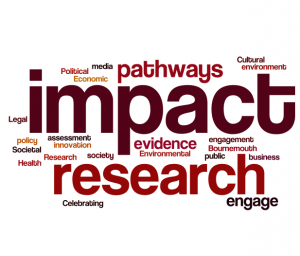

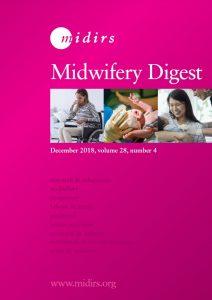
 Apply now for outreach grants of up to £2,000 from the
Apply now for outreach grants of up to £2,000 from the 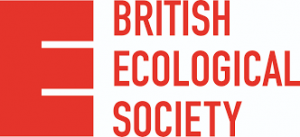
 The Science, Health, and Data Communications Research Centre invites you to our Winter-Spring 2022 research series. These talks are open to the public, and encompass topics on representations of bodies in the media, managing your health data, immersive media, and community responses to suicide.
The Science, Health, and Data Communications Research Centre invites you to our Winter-Spring 2022 research series. These talks are open to the public, and encompass topics on representations of bodies in the media, managing your health data, immersive media, and community responses to suicide.

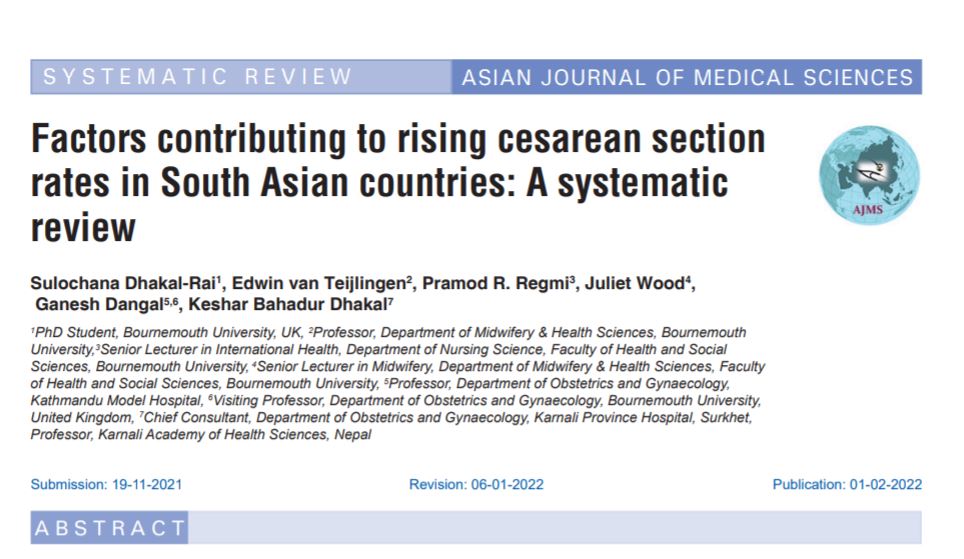 Congratulations to Bournemouth University’s PhD student Sulochana Dhakal-Rai on the publication today of the latest paper from her research thesis. This latest paper ‘
Congratulations to Bournemouth University’s PhD student Sulochana Dhakal-Rai on the publication today of the latest paper from her research thesis. This latest paper ‘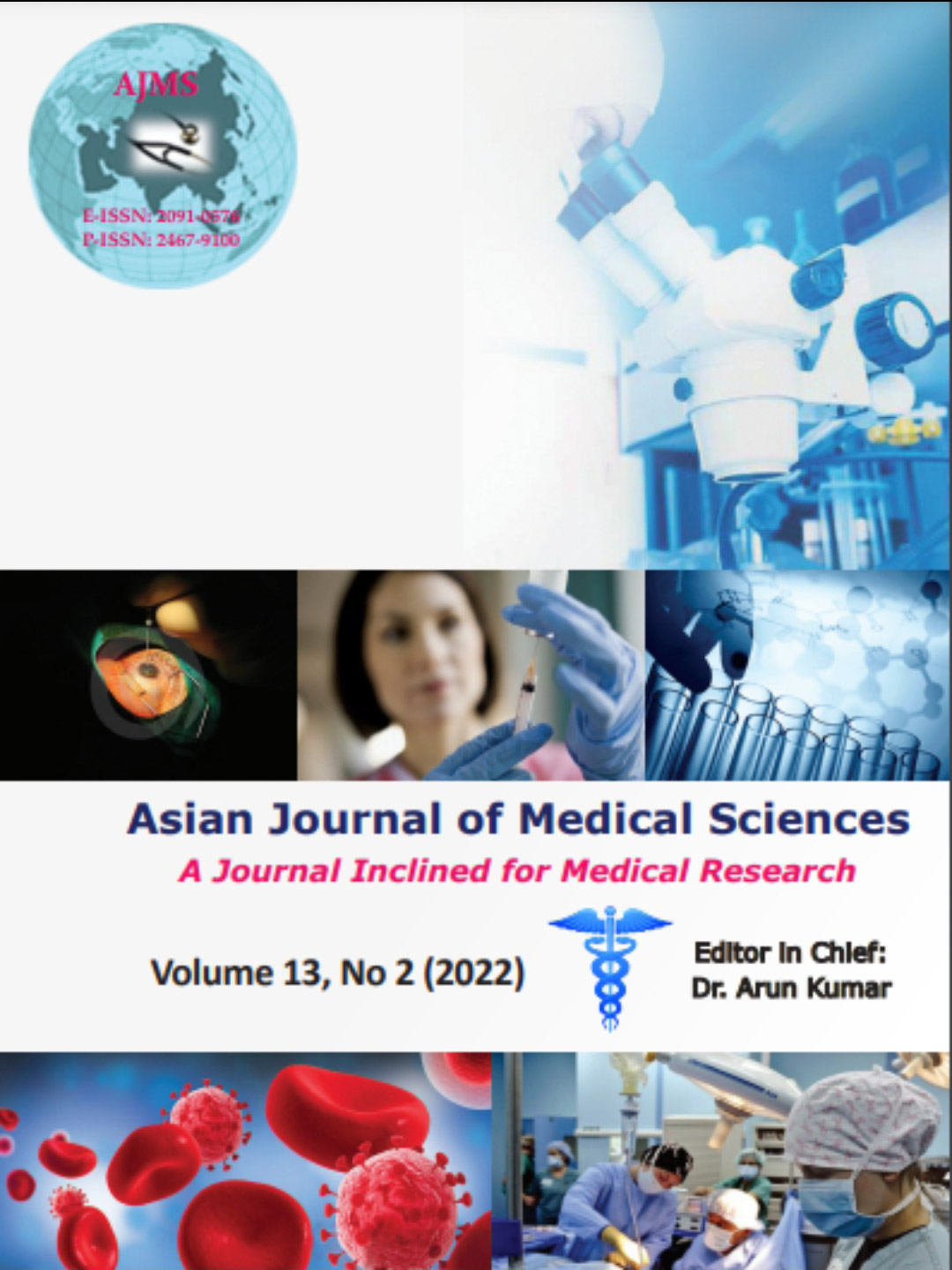 The paper is part of her PhD study of the rising CS rate in Nepal. This systematic review is co-authored with her BU PhD supervisors, Dr. Juliet Wood, Dr. Pramod Regmi and Prof. Edwin van Teijlingen as well as her Nepal-based supervisors Dr. Ganesh Dangel (FHSS Visiting Faculty) and Dr. Keshar Bahadur Dhakal. This is the sixth paper from Sulochana’s interesting and highly topical PhD thesis. The previous five were published in 2018, 2019 and 2021 [2-6].
The paper is part of her PhD study of the rising CS rate in Nepal. This systematic review is co-authored with her BU PhD supervisors, Dr. Juliet Wood, Dr. Pramod Regmi and Prof. Edwin van Teijlingen as well as her Nepal-based supervisors Dr. Ganesh Dangel (FHSS Visiting Faculty) and Dr. Keshar Bahadur Dhakal. This is the sixth paper from Sulochana’s interesting and highly topical PhD thesis. The previous five were published in 2018, 2019 and 2021 [2-6].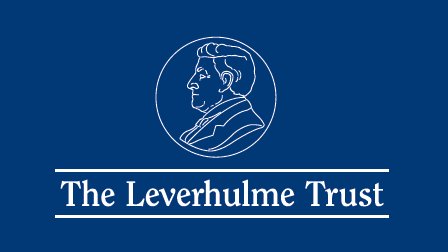













 Beyond Academia: Exploring Career Options for Early Career Researchers – Online Workshop
Beyond Academia: Exploring Career Options for Early Career Researchers – Online Workshop UKCGE Recognised Research Supervision Programme: Deadline Approaching
UKCGE Recognised Research Supervision Programme: Deadline Approaching SPROUT: From Sustainable Research to Sustainable Research Lives
SPROUT: From Sustainable Research to Sustainable Research Lives BRIAN upgrade and new look
BRIAN upgrade and new look Seeing the fruits of your labour in Bangladesh
Seeing the fruits of your labour in Bangladesh ECR Funding Open Call: Research Culture & Community Grant – Apply now
ECR Funding Open Call: Research Culture & Community Grant – Apply now ECR Funding Open Call: Research Culture & Community Grant – Application Deadline Friday 12 December
ECR Funding Open Call: Research Culture & Community Grant – Application Deadline Friday 12 December MSCA Postdoctoral Fellowships 2025 Call
MSCA Postdoctoral Fellowships 2025 Call ERC Advanced Grant 2025 Webinar
ERC Advanced Grant 2025 Webinar Update on UKRO services
Update on UKRO services European research project exploring use of ‘virtual twins’ to better manage metabolic associated fatty liver disease
European research project exploring use of ‘virtual twins’ to better manage metabolic associated fatty liver disease